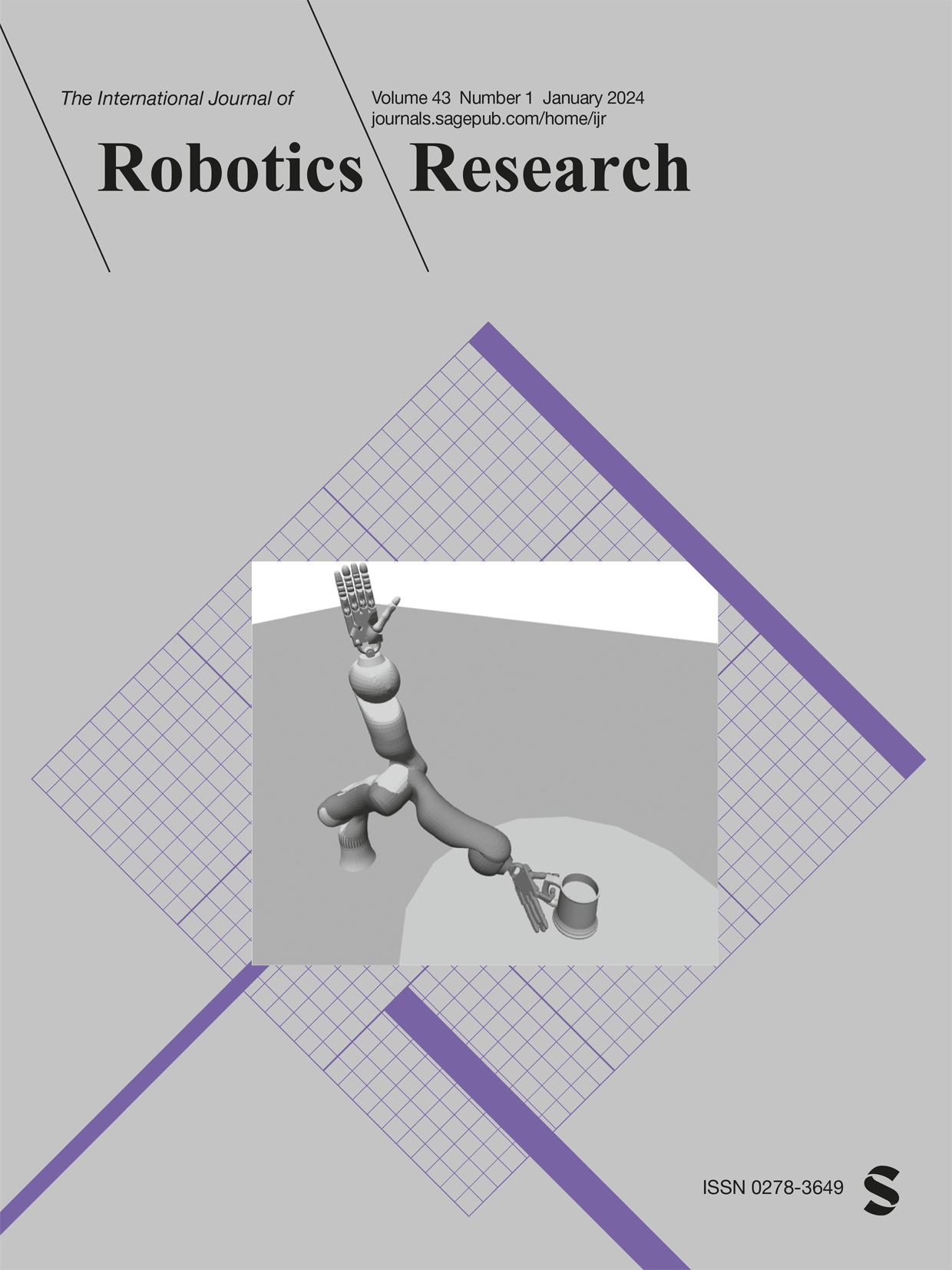中国科大fliar:重型自主高空作业机器人激光雷达-惯性相机传感器融合数据集
IF 5
1区 计算机科学
Q1 ROBOTICS
引用次数: 0
摘要
在本文中,我们介绍了USTC FLICAR数据集,该数据集致力于开发重型自主航空工作机器人工作空间的同时定位和映射以及精确的三维重建。近年来,大量公共数据集在自动驾驶汽车和无人机的发展中发挥了重要作用。然而,这两个平台不同于空中作业机器人:无人机的有效载荷能力有限,而汽车仅限于二维运动。为了填补这一空白,我们创建了基于斗式卡车的“长颈鹿”测绘机器人,该机器人配备了各种校准良好且同步的传感器:四个3D激光雷达、两个立体相机、两个单眼相机、惯性测量单元(IMU)和一个GNSS/INS系统。激光跟踪器用于记录毫米级地面实况位置。我们还制造了它的地面双胞胎“奥卡皮”测绘机器人,以收集数据进行比较。所提出的数据集将典型的自动驾驶感知套件扩展到空中场景,展示了将自动驾驶感知系统与斗式卡车相结合以创建多功能自动空中工作平台的潜力。此外,基于Segment Anything Model(SAM),我们生成了Semantic FLICAR数据集,该数据集在时间和空间维度上为多模式连续数据提供了细粒度的语义分割注释。数据集可在以下位置下载:https://ustc-flicar.github.io/。本文章由计算机程序翻译,如有差异,请以英文原文为准。
USTC FLICAR: A sensors fusion dataset of LiDAR-inertial-camera for heavy-duty autonomous aerial work robots
In this paper, we present the USTC FLICAR Dataset, which is dedicated to the development of simultaneous localization and mapping and precise 3D reconstruction of the workspace for heavy-duty autonomous aerial work robots. In recent years, numerous public datasets have played significant roles in the advancement of autonomous cars and unmanned aerial vehicles (UAVs). However, these two platforms differ from aerial work robots: UAVs are limited in their payload capacity, while cars are restricted to two-dimensional movements. To fill this gap, we create the “Giraffe” mapping robot based on a bucket truck, which is equipped with a variety of well-calibrated and synchronized sensors: four 3D LiDARs, two stereo cameras, two monocular cameras, Inertial Measurement Units (IMUs), and a GNSS/INS system. A laser tracker is used to record the millimeter-level ground truth positions. We also make its ground twin, the “Okapi” mapping robot, to gather data for comparison. The proposed dataset extends the typical autonomous driving sensing suite to aerial scenes, demonstrating the potential of combining autonomous driving perception systems with bucket trucks to create a versatile autonomous aerial working platform. Moreover, based on the Segment Anything Model (SAM), we produce the Semantic FLICAR dataset, which provides fine-grained semantic segmentation annotations for multimodal continuous data in both temporal and spatial dimensions. The dataset is available for download at: https://ustc-flicar.github.io/ .
求助全文
通过发布文献求助,成功后即可免费获取论文全文。
去求助
来源期刊
CiteScore
22.20
自引率
0.00%
发文量
34
审稿时长
6-12 weeks
期刊介绍:
The International Journal of Robotics Research (IJRR) has been a leading peer-reviewed publication in the field for over two decades. It holds the distinction of being the first scholarly journal dedicated to robotics research.
IJRR presents cutting-edge and thought-provoking original research papers, articles, and reviews that delve into groundbreaking trends, technical advancements, and theoretical developments in robotics. Renowned scholars and practitioners contribute to its content, offering their expertise and insights. This journal covers a wide range of topics, going beyond narrow technical advancements to encompass various aspects of robotics.
The primary aim of IJRR is to publish work that has lasting value for the scientific and technological advancement of the field. Only original, robust, and practical research that can serve as a foundation for further progress is considered for publication. The focus is on producing content that will remain valuable and relevant over time.
In summary, IJRR stands as a prestigious publication that drives innovation and knowledge in robotics research.

 求助内容:
求助内容: 应助结果提醒方式:
应助结果提醒方式:


